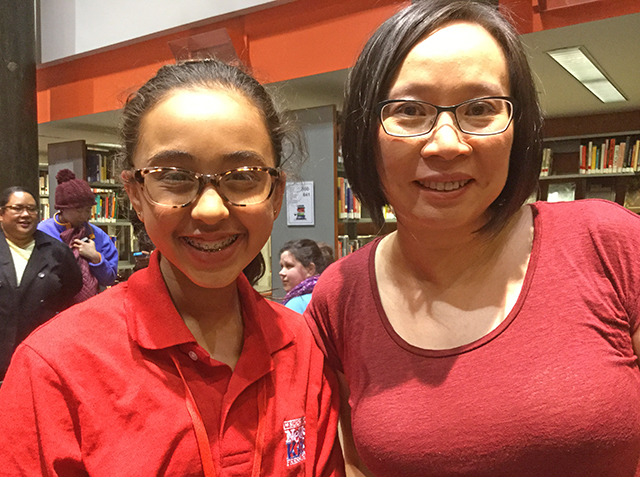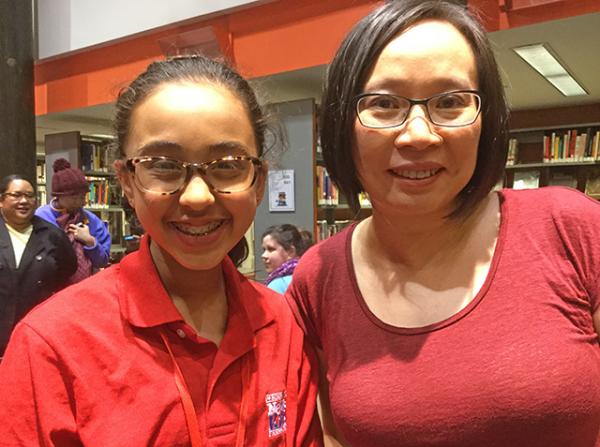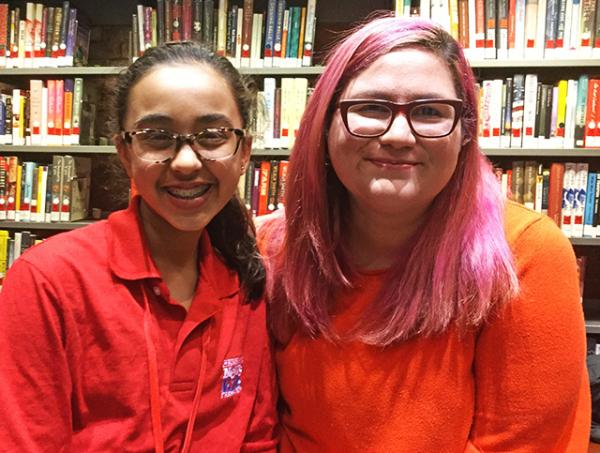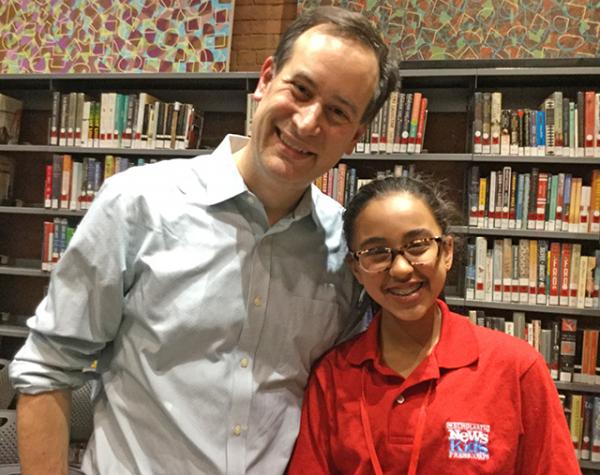KID REPORTERS’ NOTEBOOK
Girl Power! YA Authors Talk Feminism


Sunaya with author Malinda Lo
“I was 12 years old when I realized that there could be real books about girls and that stories about girls were important enough to be told.”
Those words were read aloud by New York Times bestselling author Nova Ren Suma at a panel called “Feminism for the Real World and for YA.” The discussion was held in a packed room at the Mulberry Street branch of the New York Public Library in New York City.
Suma’s essay, “Reading Worthy Women,” is part of a 2017 anthology called Here We Are: Feminism for the Real World. Included in the anthology are many popular YA authors and public figures, including politician Wendy Davis, ballet dancer Michaela DePrince, and actress Mindy Kaling.
The March 20 panel was part of the 2017 NYC Teen Author Festival. Now in its 10th year, the event is co-organized by acclaimed YA author David Levithan. Other events for the week included panels on fandom, love stories, and questioning authority in YA literature.

Sunaya with author Mia Garcia
INCLUDING ALL VOICES
Authors at the feminism event discussed their favorite female protagonists and why the world still needs to address sexism, racism, homophobia, and other injustices.
Kody Keplinger, author of The Duff, spoke about seeking a female role model in literature when she was growing up. “Hermione Granger, a girl who got rewarded for being intelligent, she was a big inspiration for 9-, 10-, even 15-year-old me,” Keplinger said of the heroine of the Harry Potter series.

Sunaya with author David Levithan, a co-founder of the NYC Teen Author Festival
Other authors said that they were inspired by the fictional characters Harriet the Spy and Amy March of Little Women.
The authors also discussed their own books, which deal with issues ranging from body image and dating violence to rejecting the “nice girl” label.
“I knew early on that I felt like a feminist, and I knew that other people thought it wasn’t a good word,” said Malinda Lo, author of Ash. “One time, my dad said I shouldn’t go around saying I was a feminist, and I said, ‘Why not?’”
Marie Rutkoski, author of The Winner’s Trilogy, said that “feminism is for everybody. It’s not just for girls. It’s for boys, too. It’s not possible to have a feminist society if boys are not going to stand up for the equality of girls.”
Even though there are many women authors in YA literature, the panelists said, books for teens still do not represent all voices.
“We’re fighting for more diverse voices . . . because they are sorely lacking on all fronts,” Suma noted in her essay. “Here we are saying, ‘We still have a ways to go.’”
